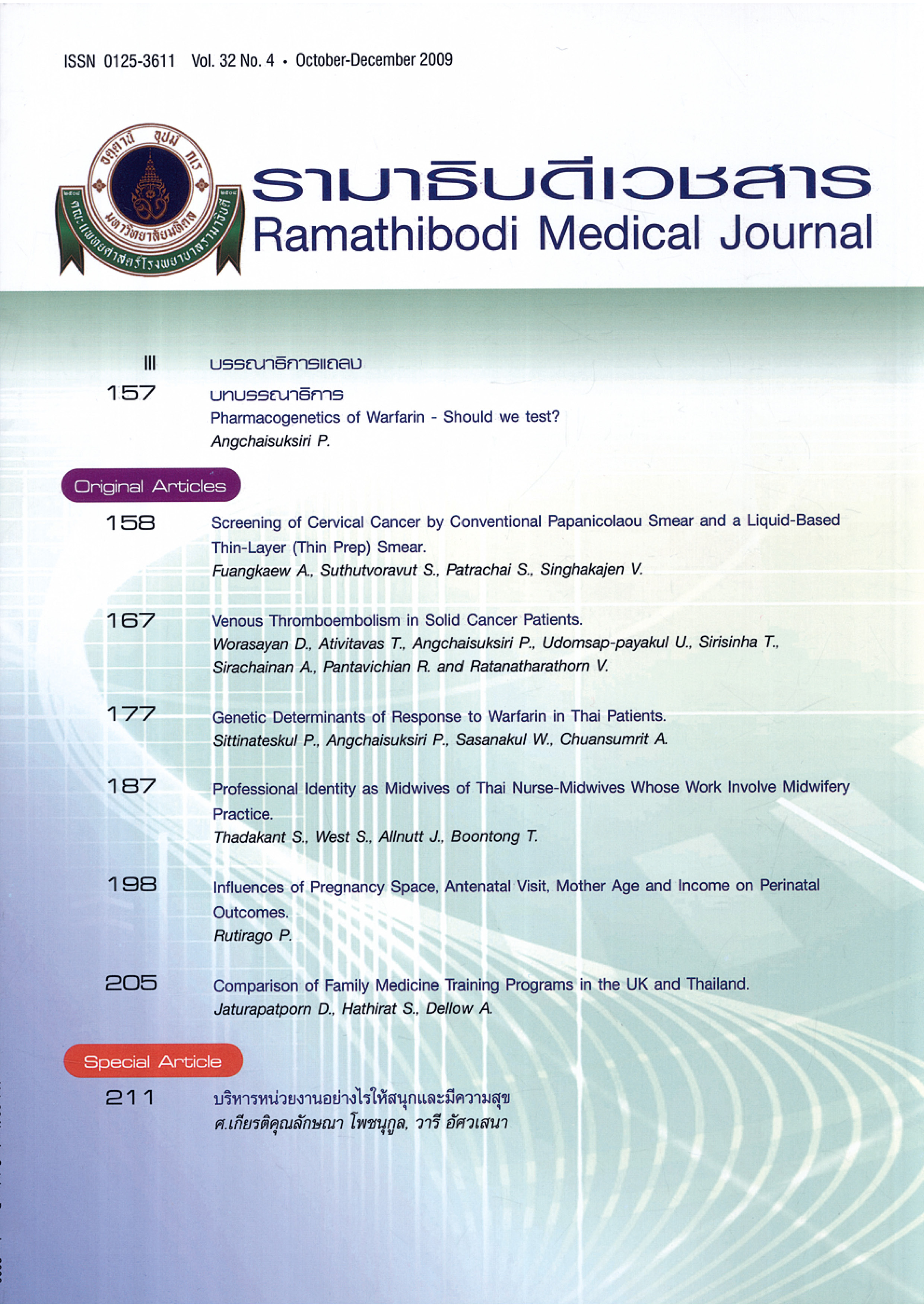Pharmacogenetics of Warfarin Should we test?
Keywords:
Pharmacogenetics, WarfarinAbstract
Warfarin is the mainstay of anticoagulation therapy. It is used for the prevention and treatment of venous thromboembolism, myocardial infarction, and strokes. Its clinical use, however, is complicated by the fact that it has a narrow therapeutic index with associated adverse effects that are potentially serious, i.e., bleeding, and the dosage requirement to produce a required degree of anticoagulation varies widely between patients. The reason for the latter is multifactorial and includes determinants such as drugs, age, diet, race and genetic factors. To date, there has been no reliable means of predicting an individual’s response to warfarin prior to initiating therapy.
The discovery of common polymorphisms related to warfarin pharmacokinetics and pharmacodynamics over the last 10 years provides a unique opportunity to develop a pharmacogenetics-based approach to oral anticoagulant therapy. By using a pharmacogenetics-based approach to predict the patient’s maintenance dose a priori, initiation of warfarin therapy may become safer and more efficient.
References
Sittinateskul P, Angchaisuksir P, Sasanakul W, Chuansumrit A. Genetic Determinants of Response to Warfarin in Thai Patients. Rama Med J. 2009;32(4):176-85.













